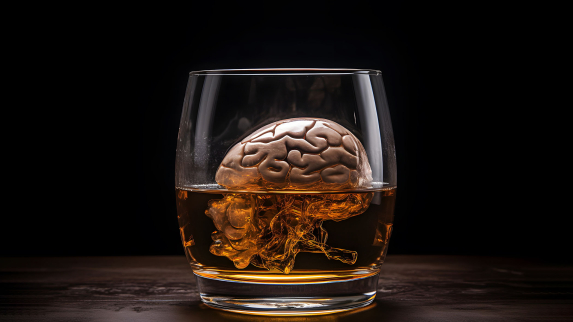Rutgers Health researchers have discovered that brain immune cells from people with a high genetic risk for alcohol use disorder (AUD) behave differently than cells from low-risk people when exposed to alcohol. Their study in Science Advances could help explain why some people are more susceptible to developing drinking problems and potentially lead to more personalized treatments.
“This is the first study to show how the genetic variations that increase the risk of AUD affect the behavior of some brain cells,” said Zhiping Pang, a professor of neuroscience and cell biology at Robert Wood Johnson Medical School and a resident scientist at the Child Health Institute of New Jersey and a core member at the Rutgers Brain Health Institute. “We started with a simple model, but as the models get more complex, we’ll learn more about what’s happening in the brain,” said Pang, the senior author of the study. “Hopefully, our discoveries will suggest treatment approaches because we don’t currently have great treatments for AUD.”
According to the 2023 National Survey on Drug Use and Health, nearly 28.9 million people ages 12 and older in the United States struggle with alcohol use disorder. While scientists have known the condition runs in families – with genetic factors accounting for 40% to 60% of risk – the biological mechanisms behind this hereditary component have remained unclear. To read the full story.

